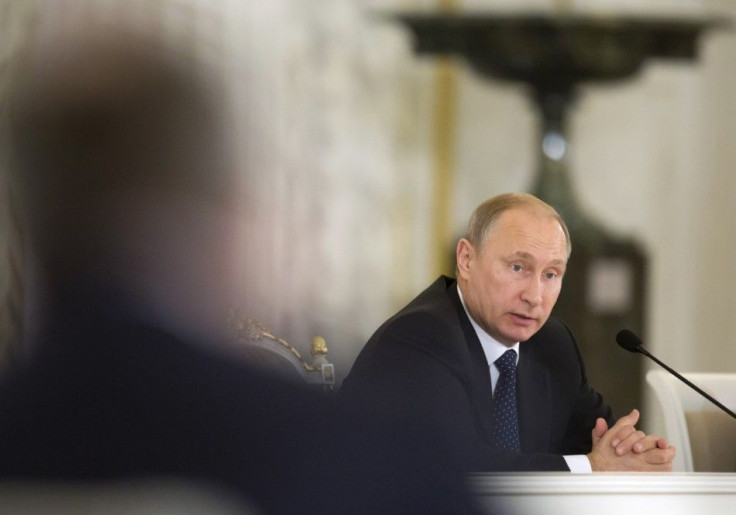John McCain Calls Some Republican Law Makers As “Pro Putin” For Favouring Russian Engines In Defense Bill

Despite the renewed cold war between the United States and Russia, lately on Ukraine issue, space missions in the U.S. still have a Russian presence by way of the rocket engines made there.
However, Senator and senior Republican law maker, John McCain has been determined to rid the U.S. space industry of Russian rocket engines. His goal had a partial success with a law put in place for faster indigenisation. But its execution seems to be hamstrung by a devious clause placed in the upcoming defense spending bill. The Congress has passed a law mandating for a domestically produced next-generation rocket propulsion system by 2019 to avoid the Russian RD-180 rocket engine.
RD-180 Engines
But MCCain's wish to see a rapid phase out of the RD-180 engines from Russia, which had been powering the Atlas V rocket used in most of the U.S. launches, in the last 20 years, is facing a setback. Though McCain’s patriotic enthusiasm was duly shared by United Launch Alliance, the leading space rocket contractor co-owned by both Boeing and Lockheed Martin and it committed at developing an all-American Vulcan rocket with a new engine, there are hitches.
The ULA is insistent that in the interim, until it brings out its own product, the U.S must carry on with the 14 Russian made RD-180, for which it has already given import orders from Russia’s Energomash in 2012.
However, the exact number of engines ULA is allowed to import is the matter of back-end politics going on in Congress. The House version of the 2016 defense spending bill puts that number at 14, while Senate insists it is 9 and McCain arguing for the number to be still less. McCain is seeing the work of a lobby in this new taste for Russian engines.
He believes a few in his own Republican party is strengthening ULA’s hand with a “outrageous” provision in the bill.” According to Section 8045, any tender for a space launch in the 2016 fiscal year must have bids from two suppliers, and if there are fewer the competition the bid become void. As of now, the U.S has only two companies licensed for space launches-ULA and Elon Musk’s SpaceX. This gives ULA the edge to disallow any other tender saying it has no engines because of Congress curbs.
Putin Lobby
McCain blames Alabama Senator Richard Shelby, and his group as pro-ULA and "pro-Putin.” McCain asked, “why in the world would anyone think we would want to continue dependency on Russian rocket engines, which traces up to the corrupt mafia that is around Vladimir Putin?” McCain was speaking to The Daily Beast. “The American people should ask a question of these appropriators: Why are you taking care of Vladimir Putin’s cronies?”
But the risk is that the RD-180 replacement program threatens to create a major bottleneck for the U.S. space industry. Even after the current 14 Russian engines are fired into space, the future of the Vulcan will be uncertain with 2022 set as the earliest working date, even if all field tests turn positive. ULA has also stated that each launch may cost up to $1 billion, which is five times the current price.
Pentagon, concerned by the spurting cost and possible disruption in the space program coming from long delays, pleaded with Congress to drop its politically-motivated plans. Defense Secretary Ash Carter wrote the anti-Russian legislation could leave a multiyear gap “where we have neither assured access to space nor an environment.”
Space Command View
Meanwhile, the Commander of U.S. Air Force Space Command General John Hyten also noted that guaranteeing the United States access to space requires will require the continued purchase of Russia’s RD-180 rocket engine. “I support the recent Department of Defense request to Congress that allows ULA to complete the 2012 purchase agreement they made for additional RD-180s,” General Hyten said in a testimony to the House Of Representatives. He said without the supply of RD-180 the U.S. would be constraining its “assured space access.”
(For feedback/comments, contact the writer at k.kumar@ibtimes.com.au)





















